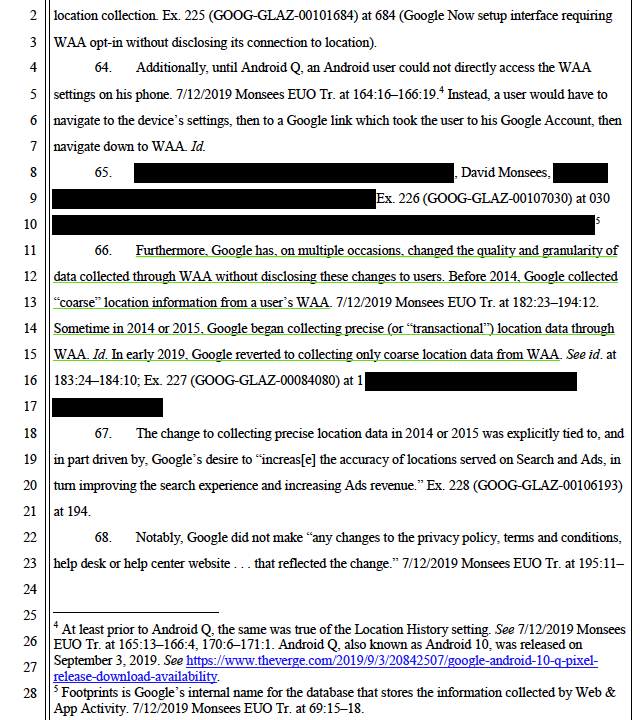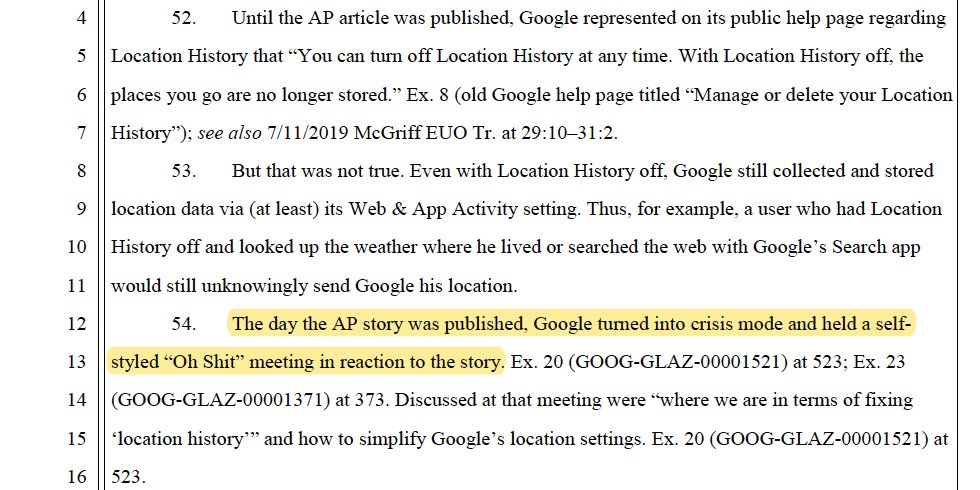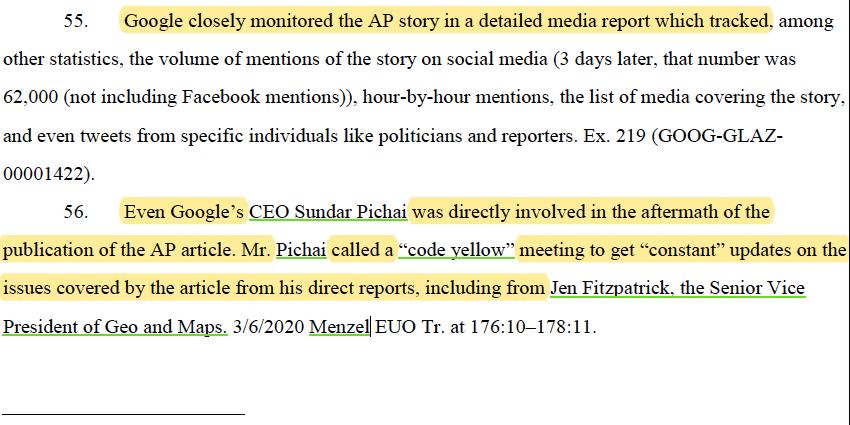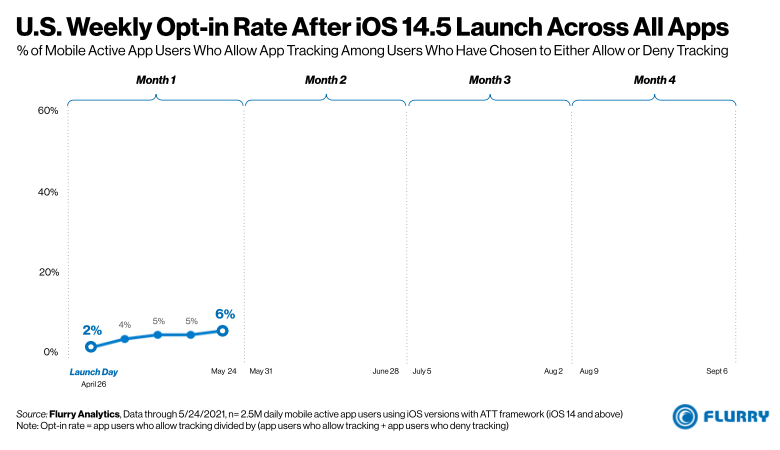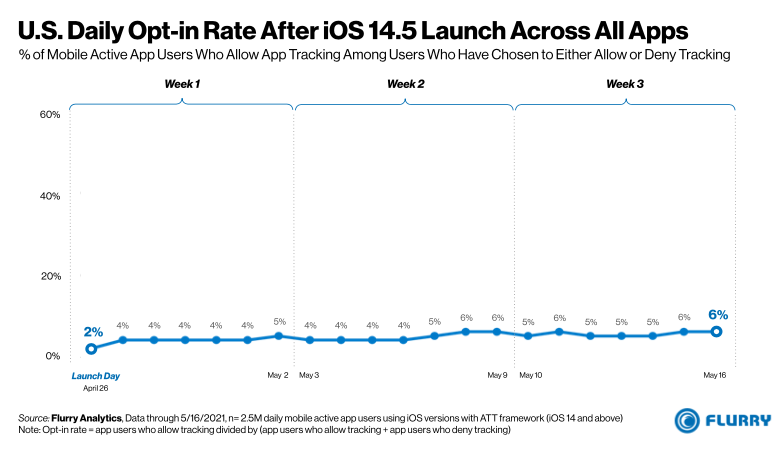
I was debating with our boys over over the weekend whether there were more legos or cicadas on the planet at the moment. Despite the density in Virginia right now, I overwhelmingly assumed legos. Not so sure now. Can I get an opinion, @LEGO_Group? nationalgeographic.com/podcasts/artic… 
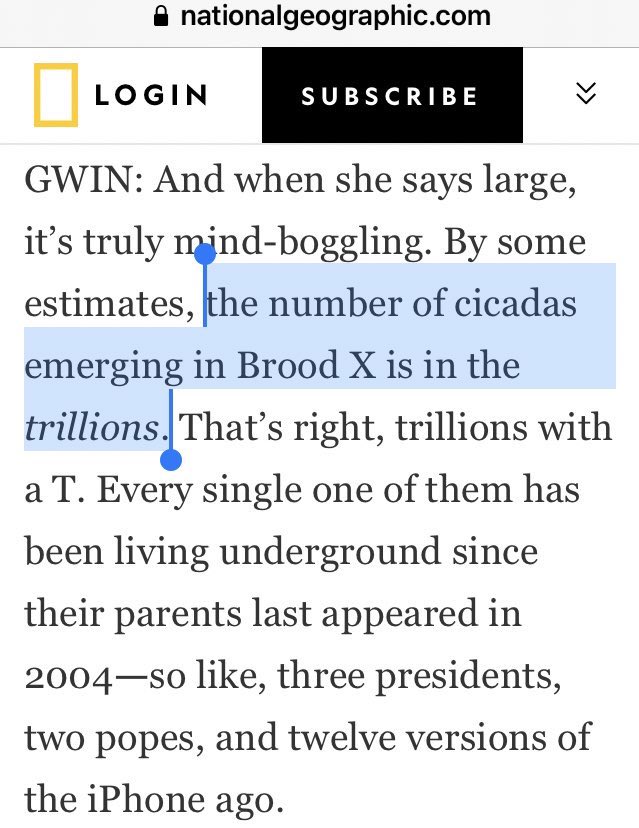
How about it? @NatGeo sparked the debate and answered it for me just now at @NGKids. natgeokids.com/nz/kids-club/e… 
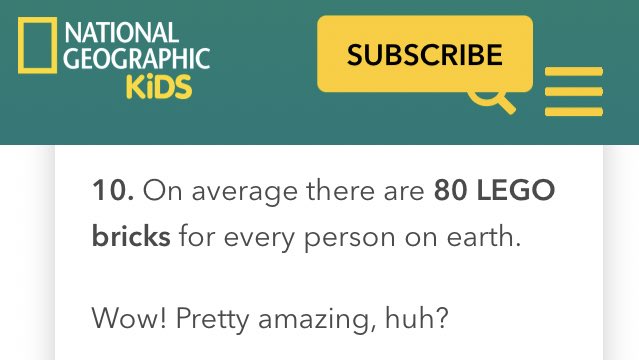
Let’s put it to the people, which are there more of on the planet right now? I need more analysis on this before the kids wake up.
I mean 632 billion LEGO bricks in the world is A LOT. Now drop all of them on Northern Virginia multiply them a few times and that’s how many cicadas we’ve got. 👀
An unrelated side note to my query just now. A Duck Duck Go search for “Brood X” returns @GiantFood. You got me. Search Engine Marketers hacking growth. 
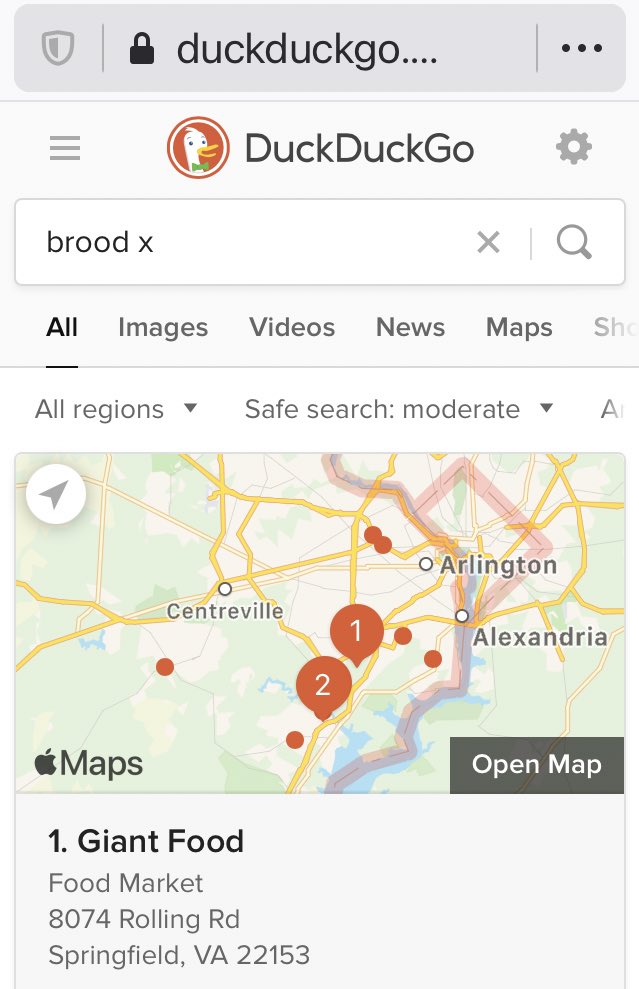
• • •
Missing some Tweet in this thread? You can try to
force a refresh


